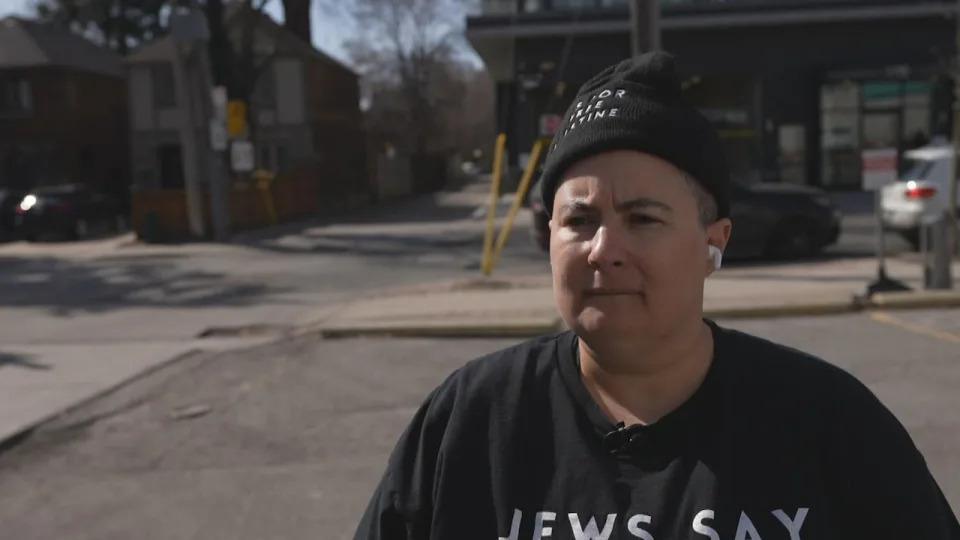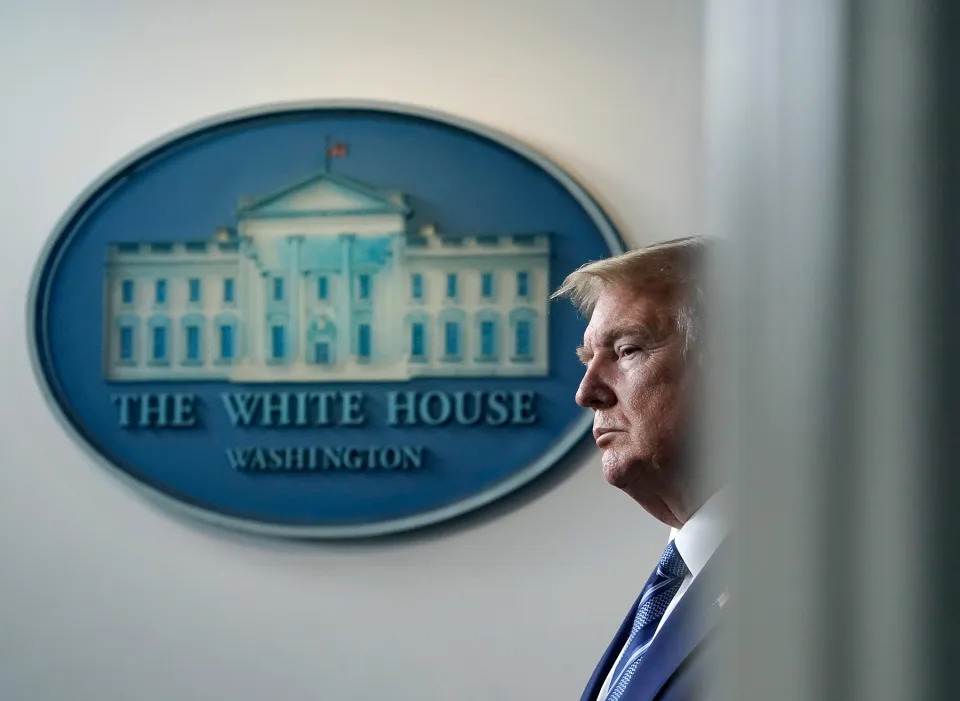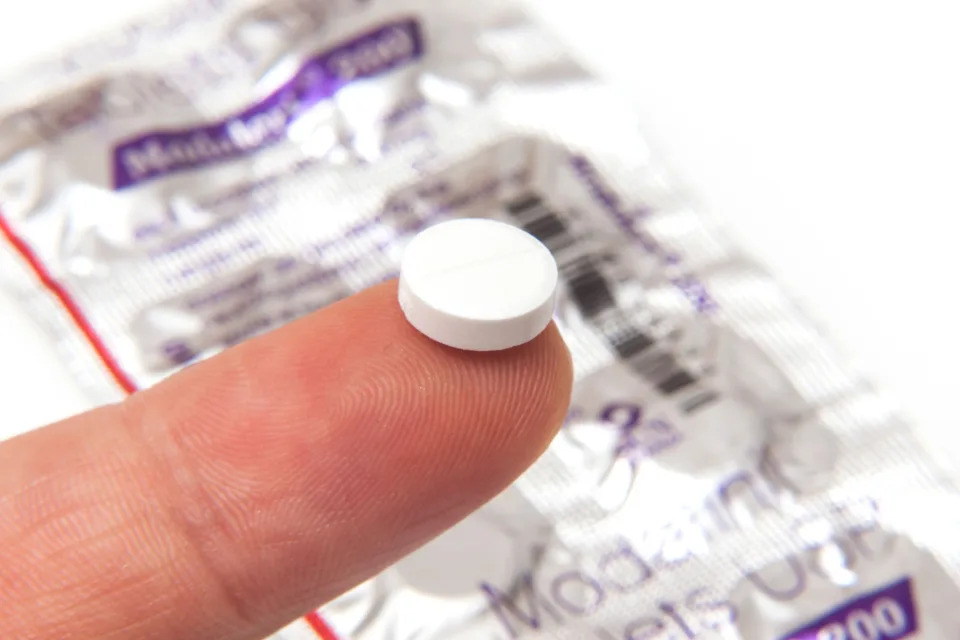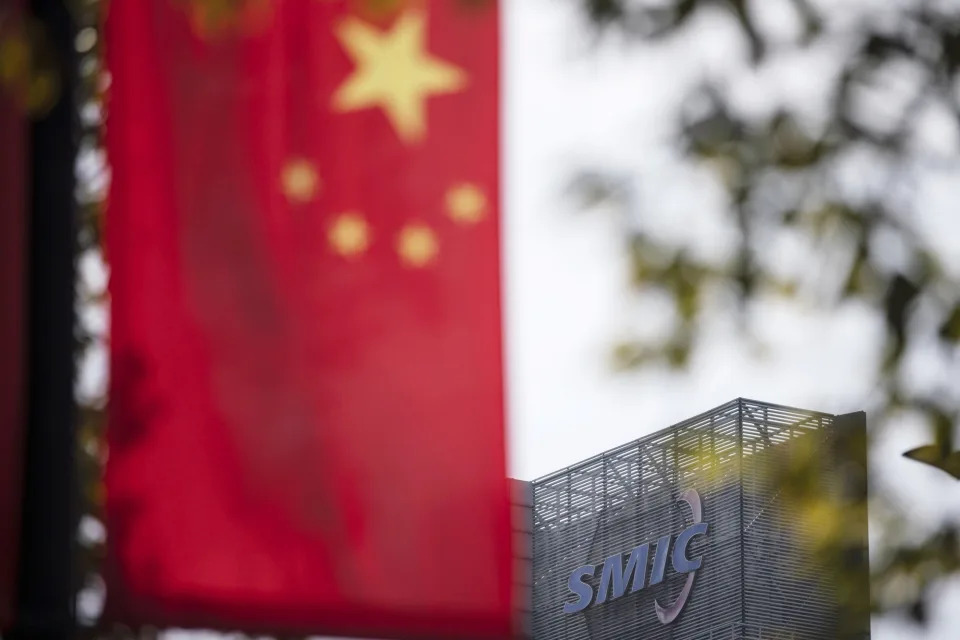CANADA
Pro-Palestinian demonstrators say they feel vilified after protest cancels PM eventThe Canadian Press
Mon, March 4, 2024

OTTAWA — Organizers of a pro-Palestinian protest that disrupted a weekend reception featuring Prime Minister Justin Trudeau say they're being unfairly vilified.
The event, which was to include Italian Prime Minister Giorgia Meloni, was abruptly called off as demonstrators blocked entrances to the Art Gallery of Ontario.
Toronto police said there were no injuries arising from the protest of about 400 demonstrators, and no arrests were made, but investigations are ongoing.
Dalia Awwad, an organizer with the group known as Palestinian Youth Movement, accused elected officials of intentionally vilifying protesters in an effort to avoid talking about Canada's position on the Israel-Hamas war.
"It's also an attempt by politicians to shift the narrative away from the role they have played in the genocide," Awwad said Monday.
It's an attempt, she continued, "to make it so these protests are the issue when the issue is the role that the Canadian state is playing here."
The Canadian government has not stated an opinion on whether Israel is committing genocide in the Gaza Strip, a case South Africa has been making at the United Nations' highest court.
The federal Liberals have said they believe in the International Court of Justice as an institution and Israel must do what it can to limit civilian casualties, while condemning Hamas for its attack on Israel.
The war began after the Oct. 7 rampage, in which militants killed 1,200 people and took another 250 hostage. Israeli forces have bombarded the Palestinian territory controlled by Hamas since then, and Gaza's Health Ministry says 30,000 Palestinians are dead amid a worsening humanitarian crisis.
Protests have frequently taken place across Canada in recent months. Both Jewish and Muslim groups warn that they are seeing an increase in hateful conduct, as police report an increase in hate-motivated crimes.
At the protest in Toronto on Saturday, demonstrators blocked entrances to the art gallery and prevented many attendees from getting in. Neither Trudeau nor Meloni entered the venue, which briefly went into lockdown. International Development Minister Ahmed Hussen attempted to enter through the main entrance, but protesters blocked his path and followed him for two blocks as he was flanked by police officers while trying to enter a more secure location.
Some demonstrators confronted Hussen directly, saying it was shameful for him to call himself a Muslim. "You are complicit in the genocide. Your hands are red. You are complicit in the murder of my family members and my friends," one demonstrator said to him.
In a social media post on Sunday, former public safety minister Marco Mendicino described the gallery protesters as antisemitic "thugs."
The gallery "was not secure. And that was their objective. They don’t want their fellow Canadians to feel safe," Mendicino said in a series of posts on X.
"You break the law, you should be arrested, charged and prosecuted. … These thugs think they scored a win last night, but all they did was lose public support and embarrass themselves. Time for the madness to stop."
Amira Elghawaby, Canada's anti-Islamophobia envoy, decried a "constant rush" to portray pro-Palestinian protests as a threat to public safety.
Doing so "is both wrong and dangerous, as are attempts to obscure the facts around why peaceful protests are happening," she said on social media Monday.
Deborah Lyons, Canada's envoy on combating antisemitism, called the cancellation a "direct result of caving in to the irrational demands of an out-of-control and noisy cohort, fuelling their determination."
Michael DeForge, an organizer with the Toronto chapter of Writers Against the War on Gaza, said it was a win amid efforts to seek a change of course from politicians.
He said Trudeau has "complicity in Palestinian death."
DeForge also described Meloni as a "figurehead for far-right nationalism," and someone who "has supported the genocide of Palestinians."
Meloni and Trudeau have both advocated for a two-state solution to the conflict, in which an independent Palestinian state would exist alongside Israel.
Italy has also worked in concert with G7 countries to advocate against the killing of Palestinian civilians.
A protest outside Mount Sinai Hospital in Toronto last month drew wide condemnation from critics who saw the location as a deliberate choice.
In a joint written statement, the three groups that organized the march denied accusations of antisemitism.
"We condemn the Canadian politicians incorrectly portraying the protest as targeting the hospital," the groups said.
Zoe Newman, an organizer with Jews Say No to Genocide, was present during Saturday's protest, and took issue with it being framed as antisemitic.
"It's very troubling to have antisemitism used in a way that alters and twists its meaning," she said in an interview Monday. "Trudeau meeting with somebody whose views are hand-in-glove with antisemitism is not seen as antisemitic, but us protesting is antisemitic."
She said that framing relates back to anti-Palestinian racism that portrays all Palestinians as violent and dangerous.
Newman said as pro-Palestinian protests have been branded as antisemitic, other protesters have appreciated her presence, especially when she's wearing clothing that clearly shows she is Jewish.
"I find it's an incredibly powerful thing at a demonstration," she said. "It can give some people a real sense of safety," especially when criticism of the Israeli government is being conflated with criticism of all Jewish people.
"Having somebody there who is a Jew, and is speaking as a Jew, can help to complicate that narrative."
This report by The Canadian Press was first published March 4, 2024.
Alessia Passafiume, The Canadian Press
The gallery "was not secure. And that was their objective. They don’t want their fellow Canadians to feel safe," Mendicino said in a series of posts on X.
"You break the law, you should be arrested, charged and prosecuted. … These thugs think they scored a win last night, but all they did was lose public support and embarrass themselves. Time for the madness to stop."
Amira Elghawaby, Canada's anti-Islamophobia envoy, decried a "constant rush" to portray pro-Palestinian protests as a threat to public safety.
Doing so "is both wrong and dangerous, as are attempts to obscure the facts around why peaceful protests are happening," she said on social media Monday.
Deborah Lyons, Canada's envoy on combating antisemitism, called the cancellation a "direct result of caving in to the irrational demands of an out-of-control and noisy cohort, fuelling their determination."
Michael DeForge, an organizer with the Toronto chapter of Writers Against the War on Gaza, said it was a win amid efforts to seek a change of course from politicians.
He said Trudeau has "complicity in Palestinian death."
DeForge also described Meloni as a "figurehead for far-right nationalism," and someone who "has supported the genocide of Palestinians."
Meloni and Trudeau have both advocated for a two-state solution to the conflict, in which an independent Palestinian state would exist alongside Israel.
Italy has also worked in concert with G7 countries to advocate against the killing of Palestinian civilians.
A protest outside Mount Sinai Hospital in Toronto last month drew wide condemnation from critics who saw the location as a deliberate choice.
In a joint written statement, the three groups that organized the march denied accusations of antisemitism.
"We condemn the Canadian politicians incorrectly portraying the protest as targeting the hospital," the groups said.
Zoe Newman, an organizer with Jews Say No to Genocide, was present during Saturday's protest, and took issue with it being framed as antisemitic.
"It's very troubling to have antisemitism used in a way that alters and twists its meaning," she said in an interview Monday. "Trudeau meeting with somebody whose views are hand-in-glove with antisemitism is not seen as antisemitic, but us protesting is antisemitic."
She said that framing relates back to anti-Palestinian racism that portrays all Palestinians as violent and dangerous.
Newman said as pro-Palestinian protests have been branded as antisemitic, other protesters have appreciated her presence, especially when she's wearing clothing that clearly shows she is Jewish.
"I find it's an incredibly powerful thing at a demonstration," she said. "It can give some people a real sense of safety," especially when criticism of the Israeli government is being conflated with criticism of all Jewish people.
"Having somebody there who is a Jew, and is speaking as a Jew, can help to complicate that narrative."
This report by The Canadian Press was first published March 4, 2024.
Alessia Passafiume, The Canadian Press
















